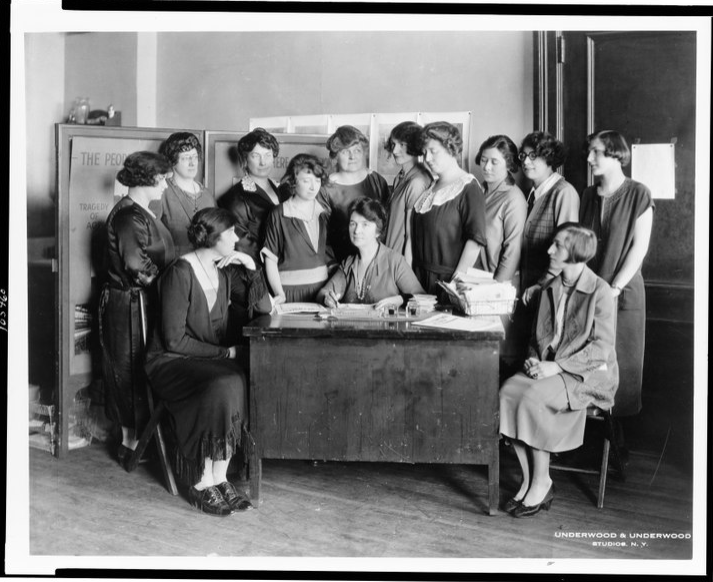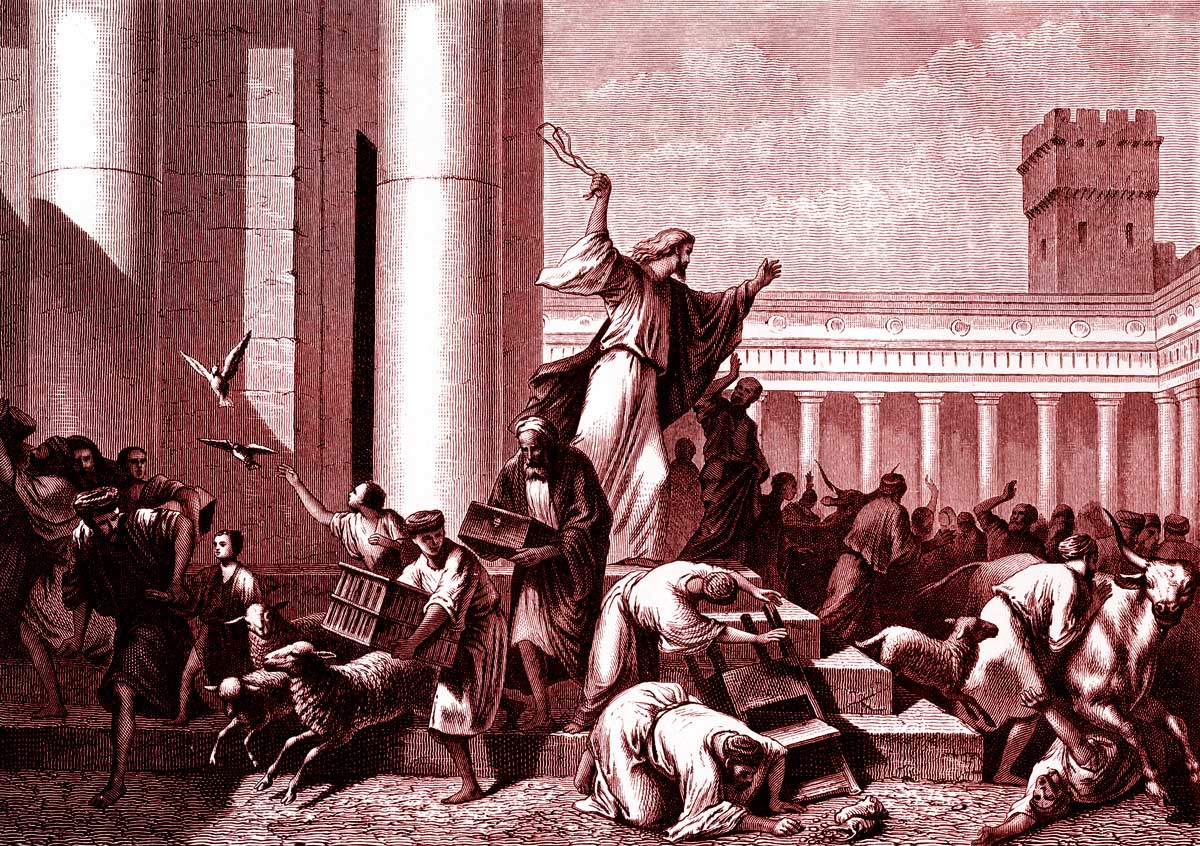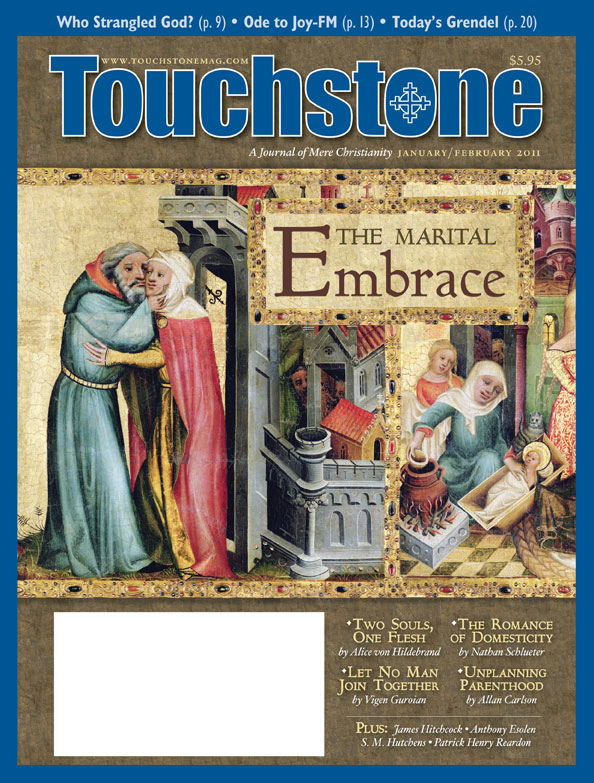Introduction
Before the start of WWI, contraception was not a controversial issue in America—almost everyone was against it. And by everyone I mean Democrats, Republicans, Catholics, Protestants, artists, businessmen, publishers (even The New York Times!), and so on (about the only voice arguing in favor of contraception was an anti-marriage, free-love movement in western New York state). This isn't to say that people weren't buying and using contraception (and having abortions) during this time, but only that there was an overwhelming consensus that contraception was bad.
Fast forward to today, and a similar percentage of Americans now seem to agree that contraception is all for the good. How did such a moral transformation take place? Who was behind it, and how did she bring it about? (Hint: she didn't sell Americans on sex, she sold them on eugenics and a fear of the Catholic church).
In the last two episodes of the Touchstone podcast, Quick Answers to Simple Questions, I discussed this near overnight transformation with Dr. Allan Carlson, who detailed this history in two Touchstone articles: Pure Visionary: The Life and Times of Anthony Comstock & Sanger's Victory, How Planned Parenthood's founder played the Christians—And Won. If you want to read this history from the beginning, I recommend reading about Anthony Comstock first.
—Douglas Johnson, Executive Editor
(read more Editor's Picks)
Sanger’s Victory by Allan Carlson
Sanger’s Victory
How Planned Parenthood’s Founder Played the Christians—and Won
by Allan Carlson
Margaret Sanger was born in 1879 in Corning, New York, and raised in a stridently socialist, feminist, and atheist home. Her father “deplored” the Roman Catholic Church. In 1913 she journeyed to Europe to study contraceptive techniques. The following year, she launched her publication The Woman Rebel under the masthead, “No Gods, No Masters.” The same year she also popularized the phrase, “birth control.”
On July 5, 1915, Sanger gave a speech at the Fabian Society Hall in London, in which she asserted that “the basis of feminism was a woman’s right to be an unmarried mother.” She ridiculed reform efforts to support motherhood—“better baby funds, Little Mothers leagues, milk stations for babies, child nurseries for the children” and “mothers’ pensions”—as so many slaps in the face of women.
Her object, she said, was to give working women “a class independence which says to the masters, produce your own slaves—keep your religion, your ethics and your morality for yourselves.” She also threw a little popular eugenics into the speech, citing Friedrich Nietzsche’s warning that the world was becoming peopled by a ludicrous species, “a gently grunting domestic animal called man.”
But over the next few years, Sanger shifted tactics. In order to cultivate people of wealth and influence, she subdued her socialist proclivities. She focused on making birth control available, combining social action, civil disobedience, and feminism with conservative financial support. In 1917, she opened her first birth control clinic in Brooklyn. Arrested, tried, and convicted under New York’s mini-Comstock law, she spent thirty days in the Queens County Penitentiary, becoming a celebrity in the process.
Sanger also revised her case for birth control. Part of this meant perfecting her negative message. She showed a “special genius” in confronting her religious, scholarly, and political foes with the brutal realities to be found in some women’s lives. As she remarked, “How academic, how anemically intellectual and how remote from throbbing, bleeding humanity all of these prejudiced arguments sound, when one has been brought face to face with the reality of suffering.”
It also meant finding a positive vision of birth control that would break through traditionalist opposition. The Great War of 1914–1918 came to her aid. It shattered moral and religious certainties, allowing Sanger to offer instead a “new” morality attuned to the times, for “morality is nothing but the sum total, the net residuum, of social habits, the codification of customs,” she wrote.
Sanger added that when children were “conceived in love and born into an atmosphere of happiness,” parenthood was “a glorious privilege and the children will grow to resemble gods.” Now avoiding praise of unwed mothers, she instead argued that “we want mothers to be fit. We want them to conceive in joy and gladness. We want them to carry their babies during the whole nine months in a sound and healthy body and with a happy, joyous, hopeful mind.” Still using the language of eugenics, she asserted that through birth control, “mothers will bring forth, in purity and joy, a race that is morally and spiritually free.”
Choosing an Enemy
Continue Reading
Allan C. Carlson is the author of numerous books, including Family Questions: Reflections on the American Social Crisis and The American Way: Family and Community in the Shaping of the American Identity. He attends St. Paul Lutheran Church in Rockford, Illinois. He is a senior editor of Touchstone.
Order
Print/Online Subscription

Get six issues (one year) of Touchstone PLUS
full online access including pdf downloads for only $39.95. That's only $3.34 per month!
Order
Online Only
Subscription

Get a one-year full-access subscription to the Touchstone
online archives for only $19.95. That's only $1.66 per month!
Order Touchstone subscriptions in bulk and save $10 per sub! Each subscription includes 6 issues of Touchstone plus full online access to touchstonemag.com—including archives, videos, and pdf downloads of recent issues for only $29.95 each! Great for churches or study groups.
Transactions will be processed on a secure server.
more on abortion from the online archives

24.1—January/February 2011
Sanger's Victory
How Planned Parenthood's Founder Played the Christians, and Won by Allan C. Carlson
more from the online archives

22.6—July/August 2009
Unhappy Fault
on the Integration of Anger
into the Virtuous Life by Leon J. Podles

30.6—Nov/Dec 2017
Odious & Deplorable
on C. S. Lewis, Brideshead Revisited & the Middle Things by Ben Reinhard
calling all readers
Please Donate
"There are magazines worth reading but few worth saving . . . Touchstone is just such a magazine."
—Alice von Hildebrand
"Here we do not concede one square millimeter of territory to falsehood, folly, contemporary sentimentality, or fashion. We speak the truth, and let God be our judge. . . . Touchstone is the one committedly Christian conservative journal."
—Anthony Esolen, Touchstone senior editor
Support Touchstone
00















